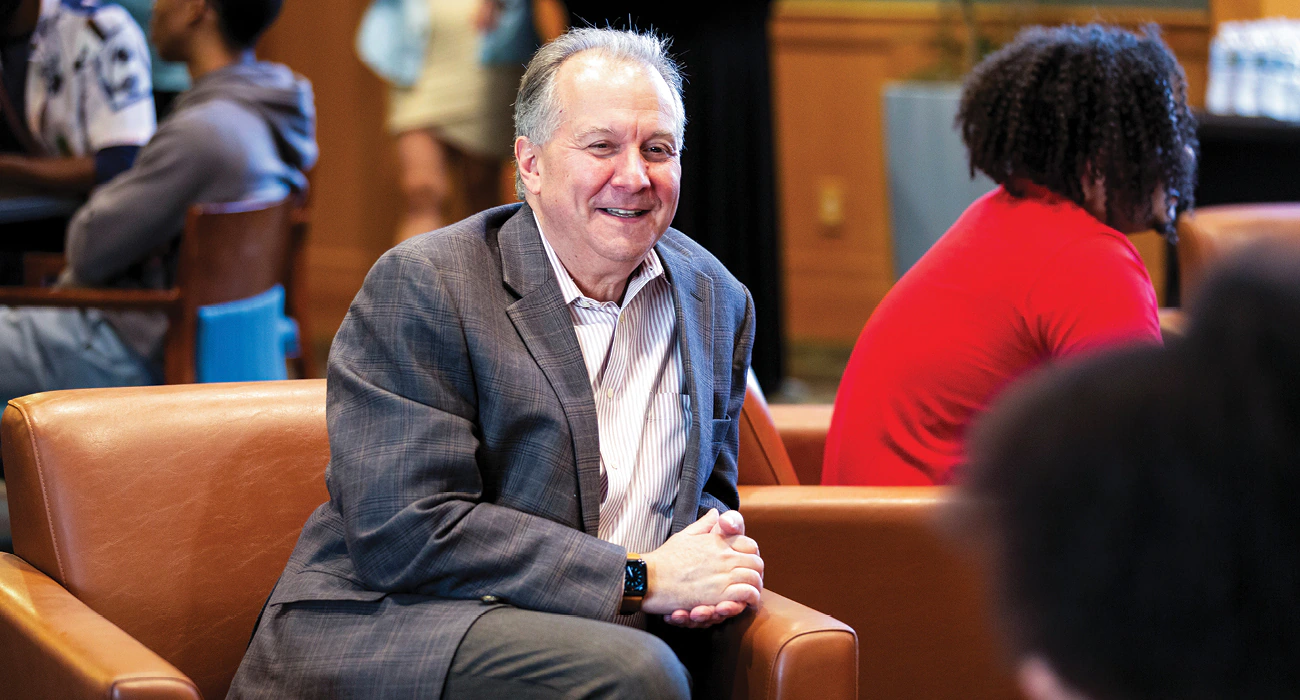From the Dean
There was a time — not that long ago on the scale of human history — when we viewed the planet as a limitless resource. It was assumed that no amount of human activity would be on a scale that could perturb the planetary state. Indeed, natural disasters such as massive volcanic eruptions and asteroid collisions were studied as events that could have global consequences. As the electrical engineers among you might attest, we can ground an arbitrary number of electrons into the earth — we never question its ability to absorb them.
This assumption of a limitless planet is, of course, false. Unlike electrons that can be absorbed by the entire volume of the earth, most of the physical process output of humanity interacts with a remarkably thin and biologically precious outer shell of the globe. Because of recently observed changes in climate, there is now a great emphasis on understanding the shift in atmospheric chemistry and heat cycles caused by the release of various gases and particles into the air. In fact, several McKelvey Engineering researchers study exactly the impact of particles on global atmospheric conditions.
But another emerging process concern is the release of plastics and other long-lasting materials into the environment. In many ways, these effects are likely to have a much more direct impact on humanity because these particles and chemicals find their way directly into our bodies through various pathways. We are only now beginning to assess the biological implications of this persistent exposure. Furthermore, these materials are almost exclusively derived from petroleum and produced by processes that themselves have environmental impact.
A potential solution to mitigating the harm caused by the prodigious use of these materials is to design alternatives that are as useful to society as traditional plastics but are also biologically safe and can be produced using nonpetroleum-based methods. Our cover story focuses on several efforts within McKelvey Engineering to create exactly these materials.
McKelvey Engineering Professor Dan Giammar; the Engineering school’s leadership of this universitywide initiative speaks to our strength in this area. You will hear much more about this aspect of McKelvey Engineering research in the years to come.
Finally, in this issue is an In Memoriam section about the passing of former Professor, Chair and Dean Salvatore Sutera. Beyond being a highly respected researcher, Sal was a passionate administrator. I am fairly certain that many of you find that phrase to be an oxymoron, but I assure you it is not. As you will read, Sal not only served two stints as chair of the Department of Mechanical Engineering, totaling more than a quarter century of leadership, but he also helped to launch the Department of Biomedical Engineering, created numerous programs and came out of retirement to help guide the school when it needed calm, stable leadership. His passion was the Engineering school, and he gave selflessly to advance our mission.

